





A fence is the obvious choice, but there are many other ways to design for privacy in the garden. We turned to members of the Remodelista + Gardenista Architect/Designer Directory for their outdoor privacy solutions:
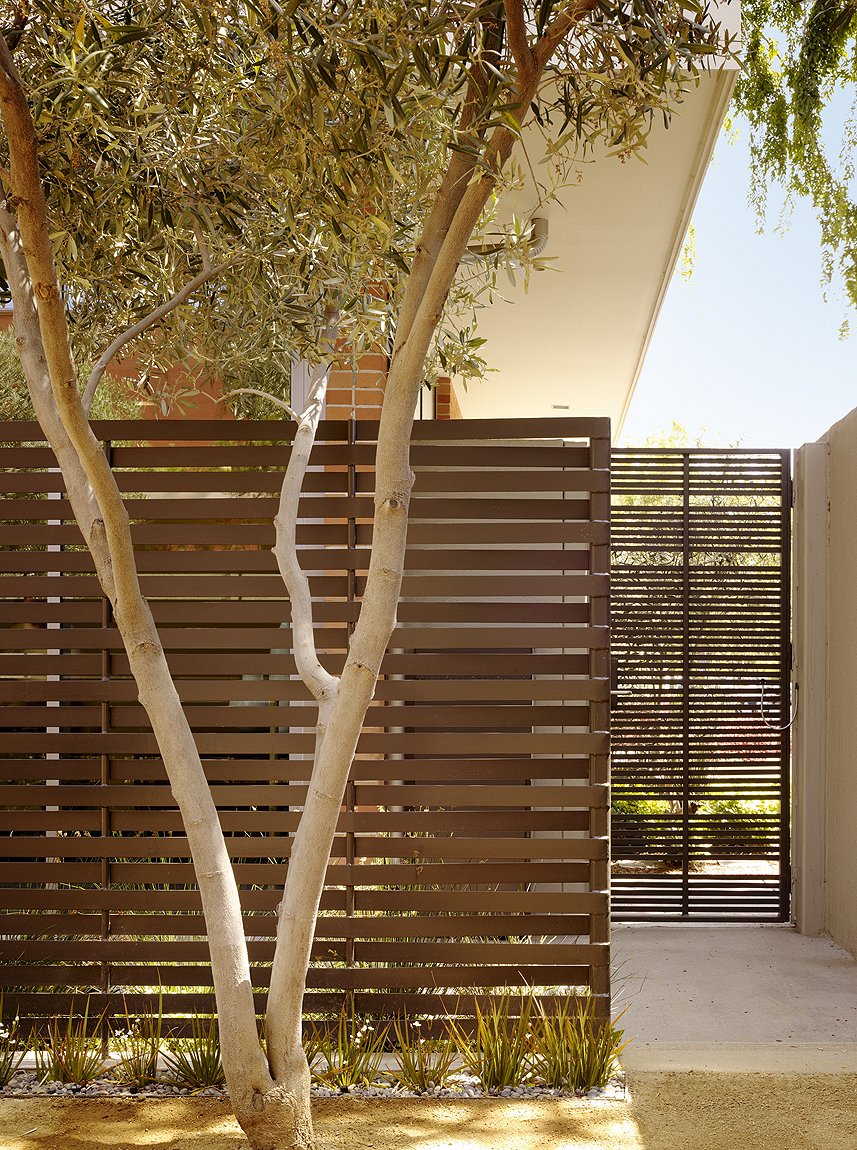
Above: Photograph by Matthew Millman courtesy of Scott Lewis.
An office building in Palo Alto needed moderate privacy for meetings and office gatherings in an outdoor courtyard. Landscape architect Scott Lewis designed a custom woven steel screen, painted chocolate brown, and planted native California rush in front. He applied a similar solution to the gate at right: “The woven steel screen and the flat-bar pedestrian gate use the same standard size of steel strap, but contrast in their spacing and pattern.”
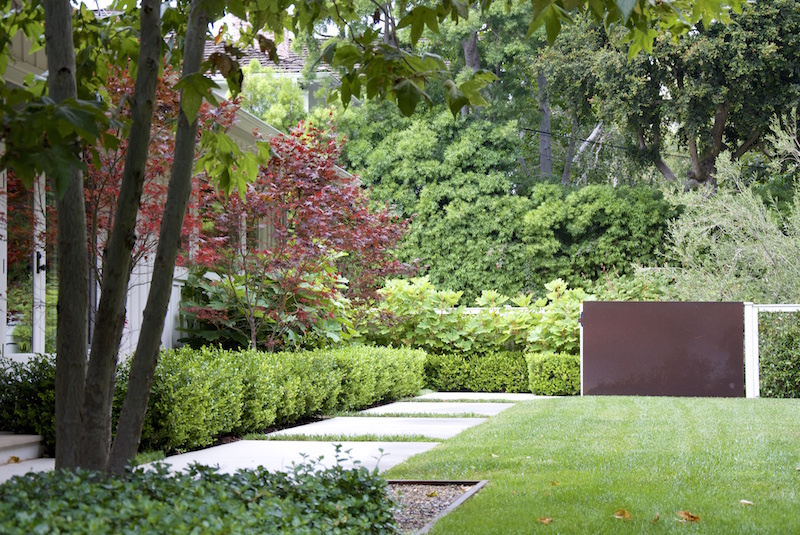
Above: In this Pacific Palisades, California home, Grow Outdoor Design used a combination of sliding wood gate, Corten steel panel, and jasmine-covered hog-wire fencing, which “all harmonize to create privacy,” according to firm partner Joel Lichtenwalter.
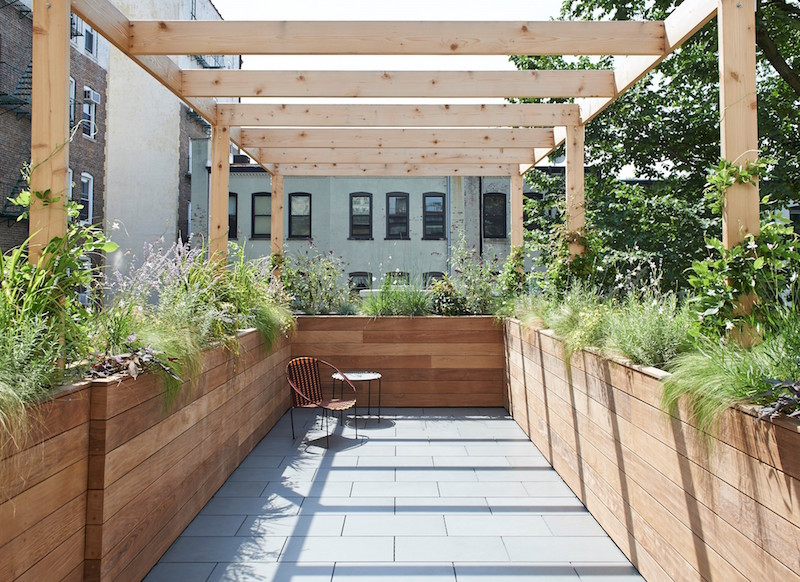
Above: Mabbott Seidel Architecture in New York designed a terrace above the backyard of a Park Slope, Brooklyn home. It has a border of ipe wood planters tall enough to act as privacy barriers; a cedar trellis overhead will eventually be covered by vines and climbers. “We like the combination of hard and soft materials,” said Matt Seidel.
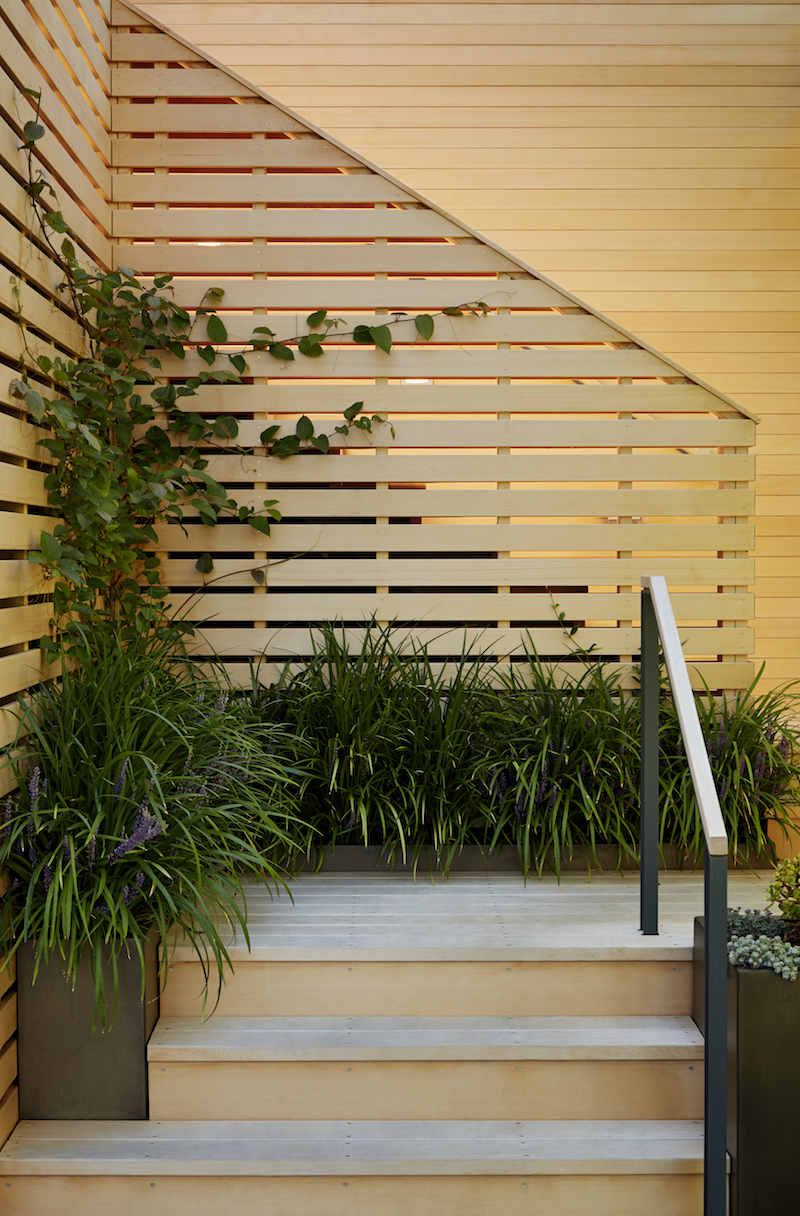
Above: Photograph by Matthew Millman courtesy of Scott Lewis.
In a Marin County, California home, Scott Lewis used Alaskan yellow cedar boards as privacy screens at several levels. “Screening was key, as the house is very close to the road and to a two-story wall of the neighbor’s garage that borders the entry garden,” he says.
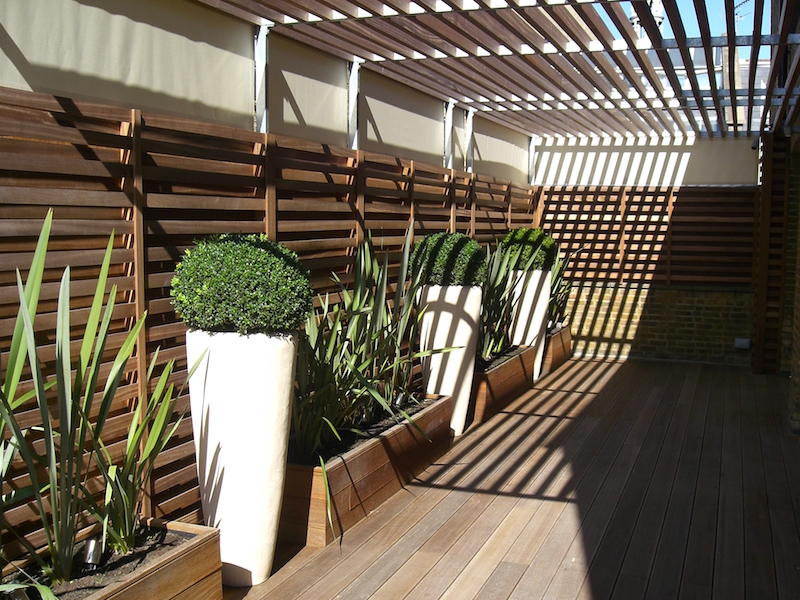
Above: UK garden designer Richard Miers designed a side trellis for a private courtyard with stretched sailcloth panels at top. Above the courtyard, a wooden screen blocks higher, adjacent apartments from looking straight in.
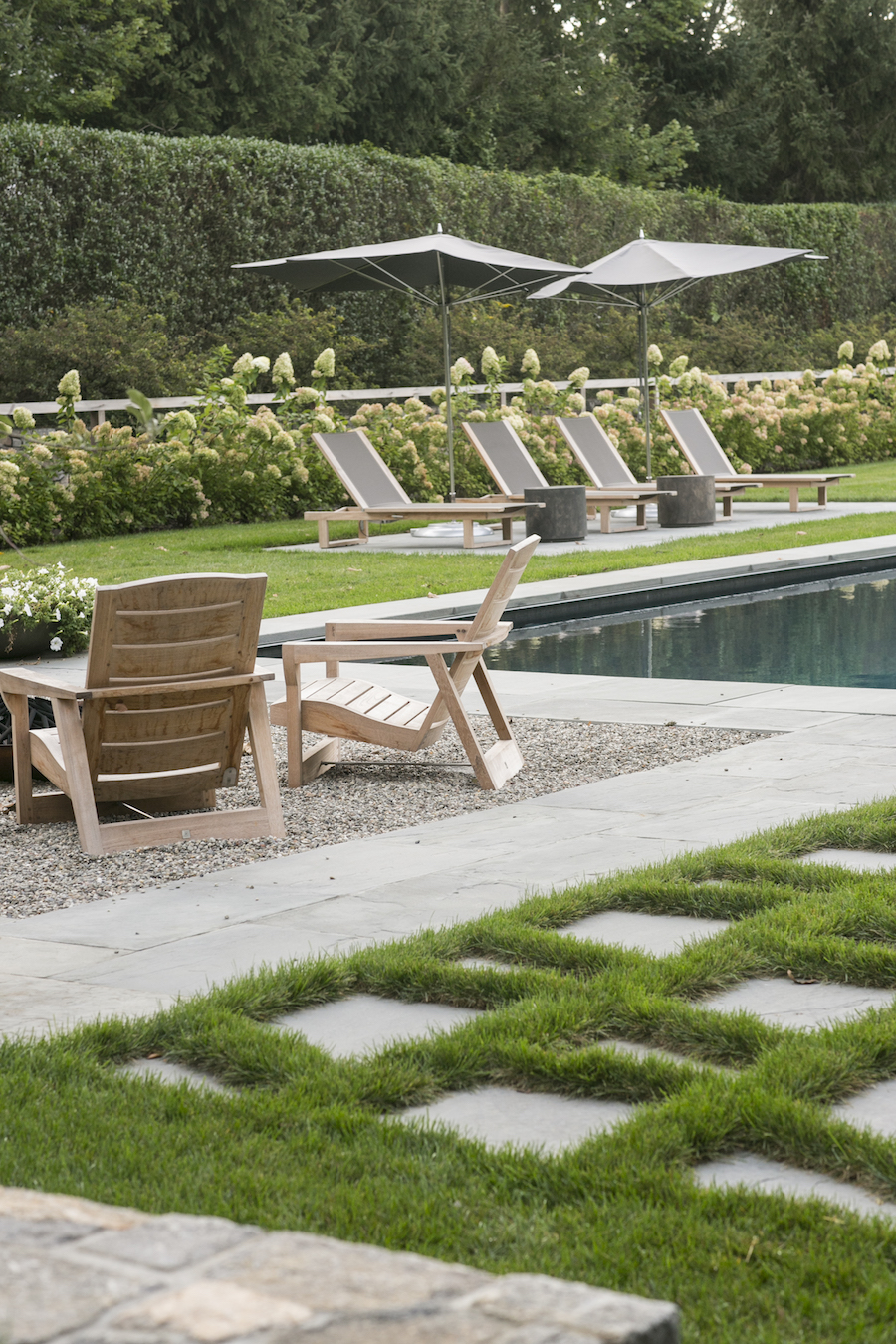
Above: Greenwich, Connecticut-based landscape architect Janice Parker used a tall hedgerow with a lower row of hydrangea in front to achieve privacy surrounding a pool. Says Parker, hydrangea hedges “are perfectly suited for planting along regulated fencing for pool areas. The bright green foliage fills in early in the spring while the beautiful blooms add interest and attract pollinators to your garden from midsummer through to the first frost.”
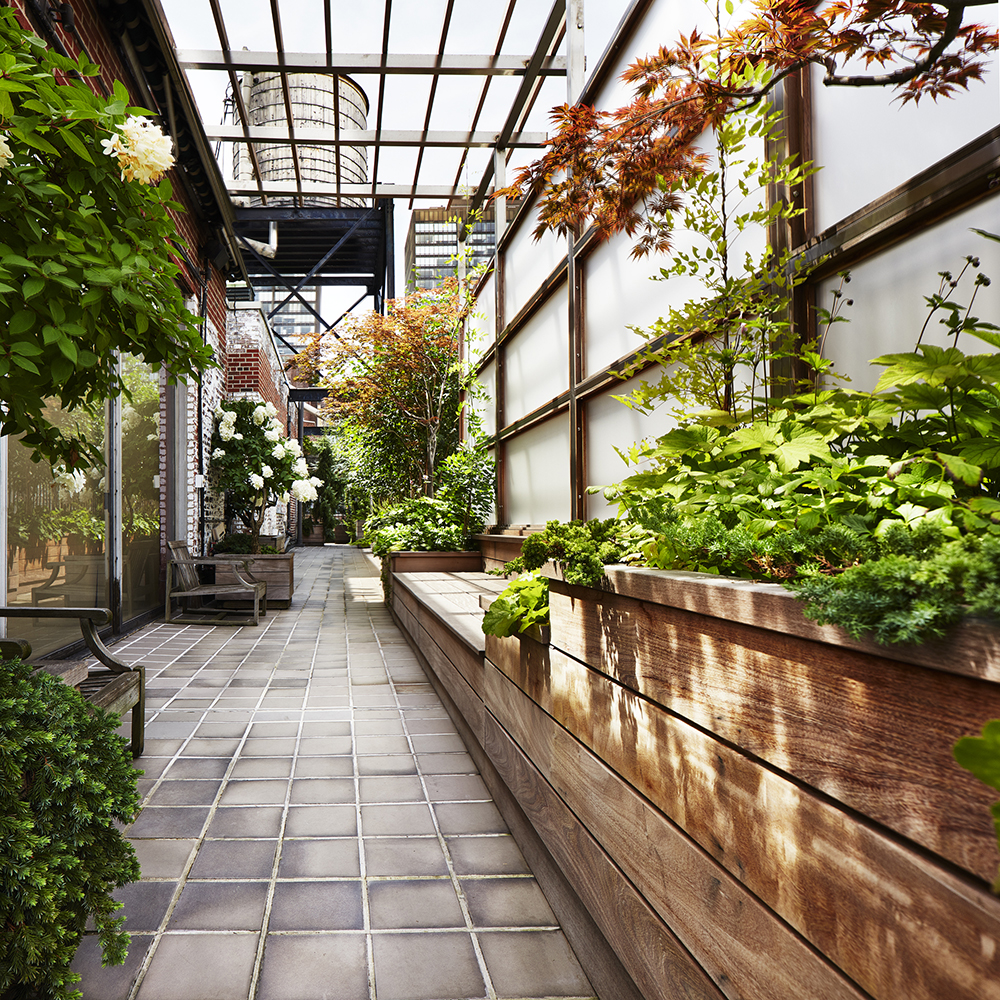
Above: Photograph by Dan Wonderly Imaging courtesy of Kim Hoyt Architect.
Architect Kim Hoyt‘s client wanted absolute privacy for his rooftop terrace on Beekman Place in Manhattan, but Hoyt didn’t want to lose the natural light. She created a custom stainless steel frame filled with translucent acrylic sheets (weight was a concern on the rooftop and acrylic is far lighter than glass).
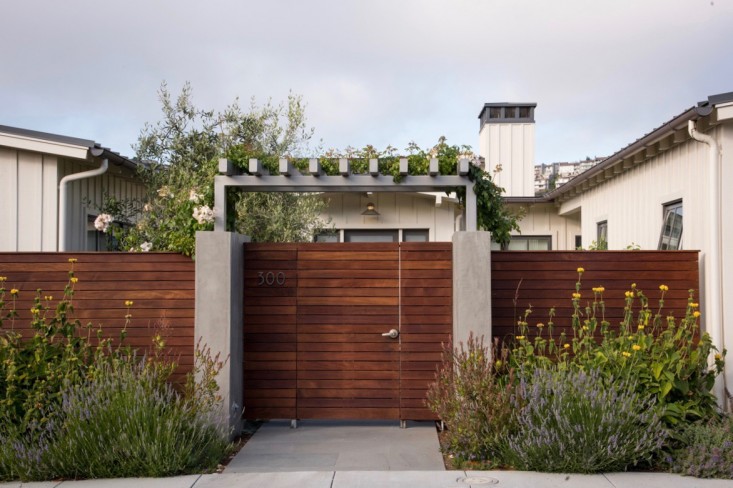
Above: Says SF-based landscape architect Pete Pedersen of Pedersen Associates, “The real key to any privacy solution is layers.” The first layer for this modern farmhouse is a custom wood fence blocking the house from the street while creating a fully private courtyard inside. (See the next “layer” below.)
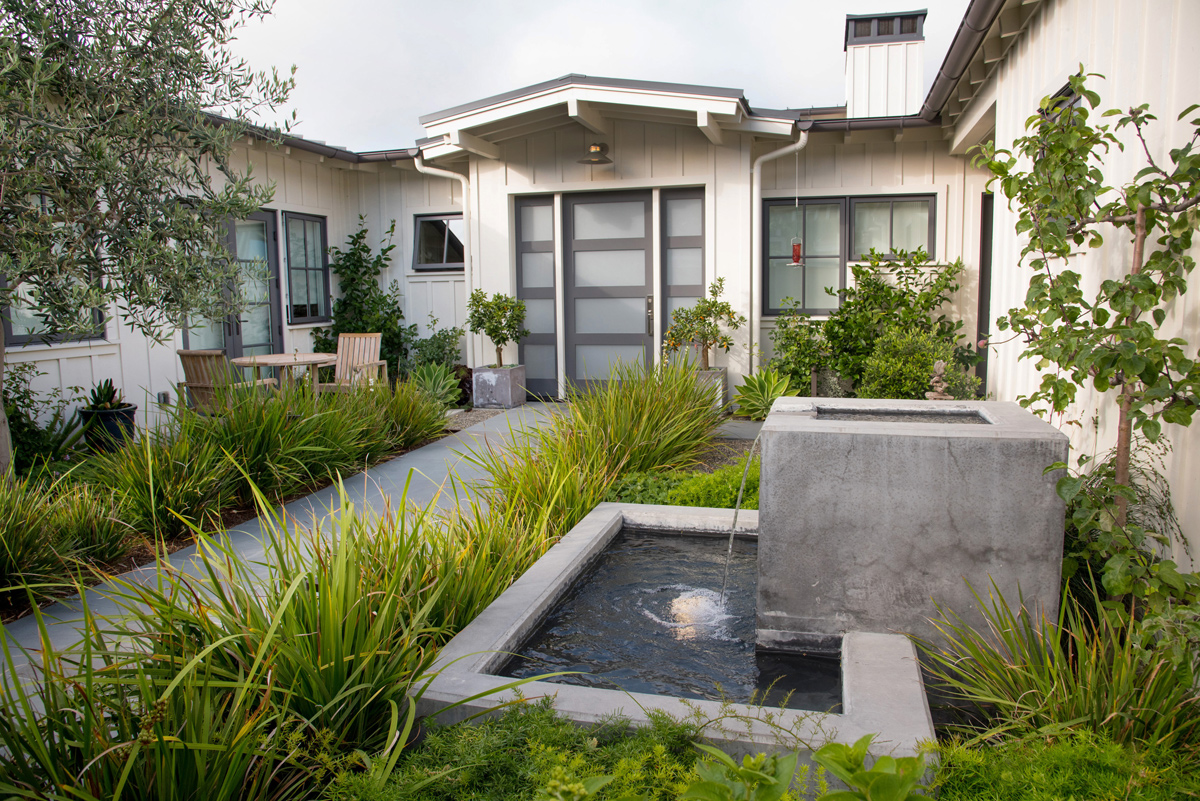
Above: Inside the courtyard, Pedersen Associates used a burbling fountain to block sounds from neighboring properties. “Visual privacy is important,” said Pedersen, “but if you can hear the neighbors talking on the phone, the effect is often lost.” Water features are underutilized as privacy solutions, he says, “but they can be absolutely turnkey.”
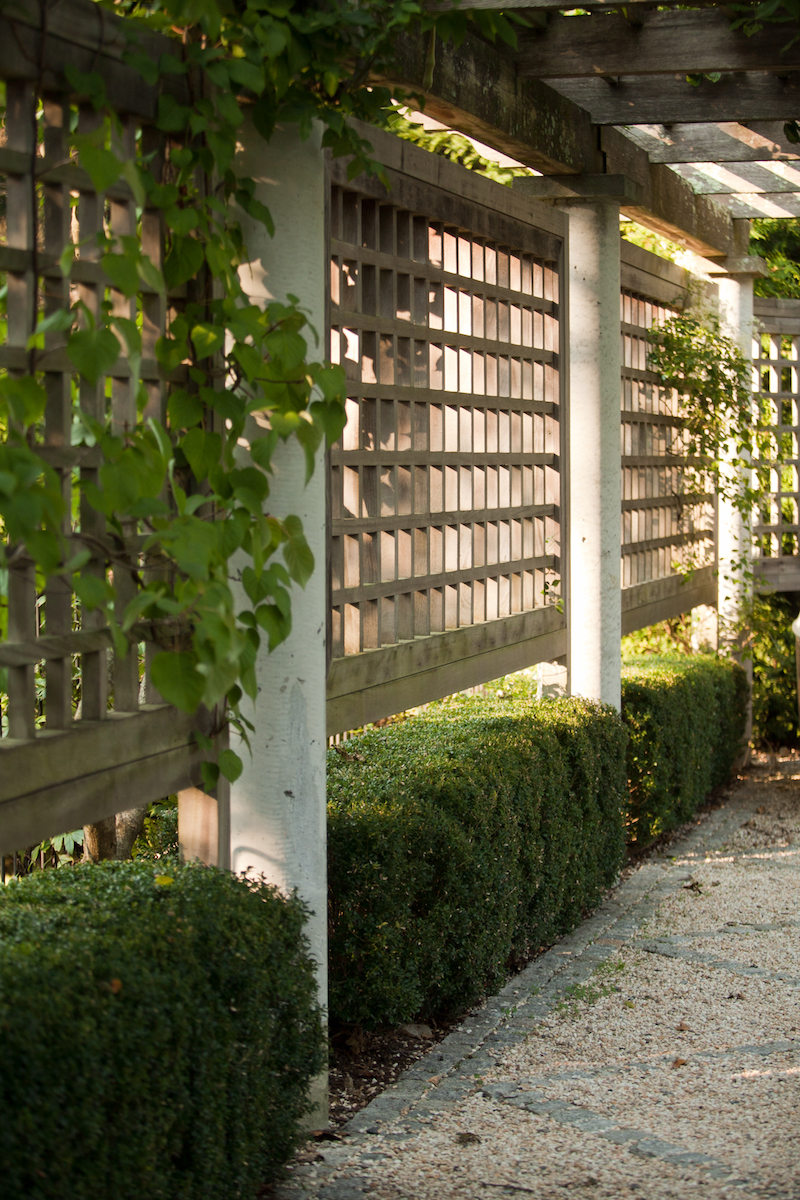
Above: On the side of a wood pergola, landscape architect Janice Parker installed a lattice trellis to help vines and climbers grow. “The combination [of pergola and trellis] provides the ideal support structure for growing perennials for additional privacy and shade,” she says.
For more privacy solutions, see Fence Fashion: 11 Ways to Add Curb Appeal with Horizontal Stripes and Before and After: A Grande Dame in LA’s Hancock Park.
Copyright © www.100flowers.win Botanic Garden All Rights Reserved